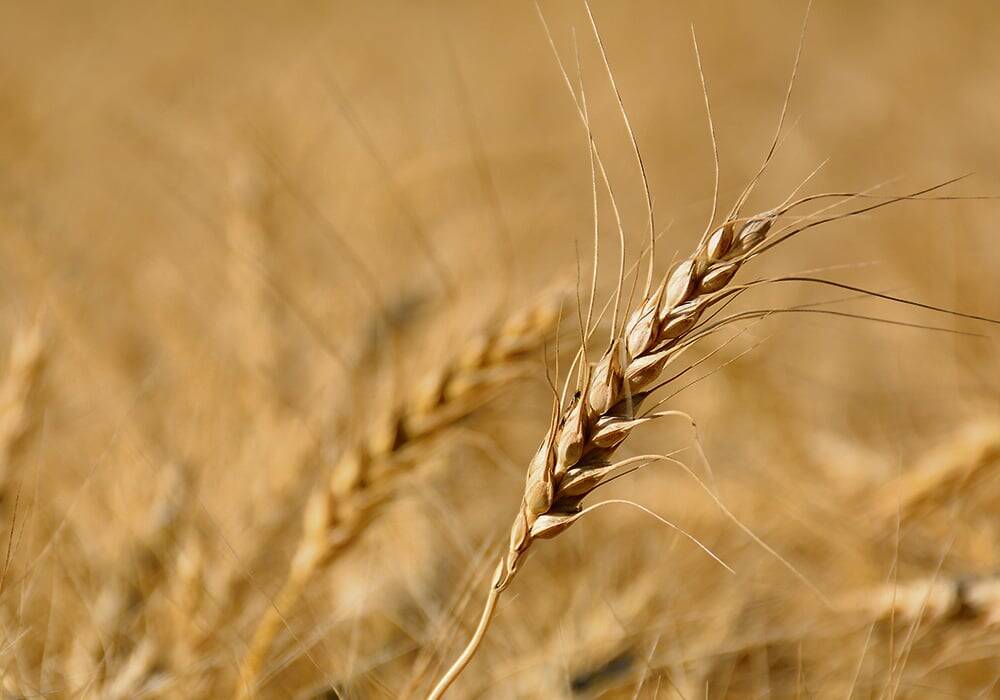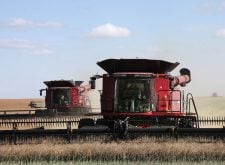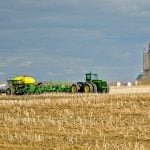Next year’s farm input market will depend on the level of pressure on farm income, but early signs suggest input prices could come down according to recent analysis from Farm Credit Canada.
“Lower farm revenue this year and next will reduce the demand for crop inputs,” wrote Leigh Anderson, senior economist with FCC, in analysis posted Aug. 28.
Record U.S. corn and soy yields are pushing commodity prices down. If Canadian farmers have average yields, lower prices could result in negative net returns for some farms, Anderson wrote.
Read Also

Prairie CWRS bids rise, other wheats mixed
Canada Western Red Spring (CWRS) wheat bids across the Prairie provinces saw some strength during the week ended Nov. 11, taking some direction from the United States futures. However, other wheat classes were mixed.
Portions of the Prairies struggled with hot, dry weather this summer. Between July 29 and Aug. 11, more Prairie farms made more than 1,600 hail claims, with the heaviest damage in Alberta, the Canadian Crop Hail Association reported.
Chemical prices have eased, Anderson said. Prices of key active ingredients have fallen, and inventories of chemicals like glyphosate have increased. Agricultural chemical sales are expected to decline by 14 per cent in 2024 and another four per cent in 2025 due to lower prices.
Fertilizer prices have declined throughout 2024. Demand, particularly for nitrogen, has been lower globally. Prices could rise before next year’s crop, Anderson said. China’s export restrictions, paused production in Egypt, and other issues are keeping prices high.
However, “if global crop prices keep falling, it could lead to even lower fertilizer prices,” Anderson wrote.
Demand for domestic fertilizer is a concern. The amount of land used for specific crop affects demand, and fertilizer use also changes on profitability, moisture and soil nutrients. Recent profitability and moisture levels could result in farmers using less fertilizer.
“Soil testing and planning crop inputs are just as important as marketing plans for profitability,” said Anderson.
FCC predicted farmers will spend 3.6 per cent less on fuel next year, though prices tend to rise and fall on global market conditions.
Commercial seed sales are expected to rise five per cent because of higher prices for hybrid seeds like canola, soybeans and corn. Prices for pedigreed seed should be stable.















